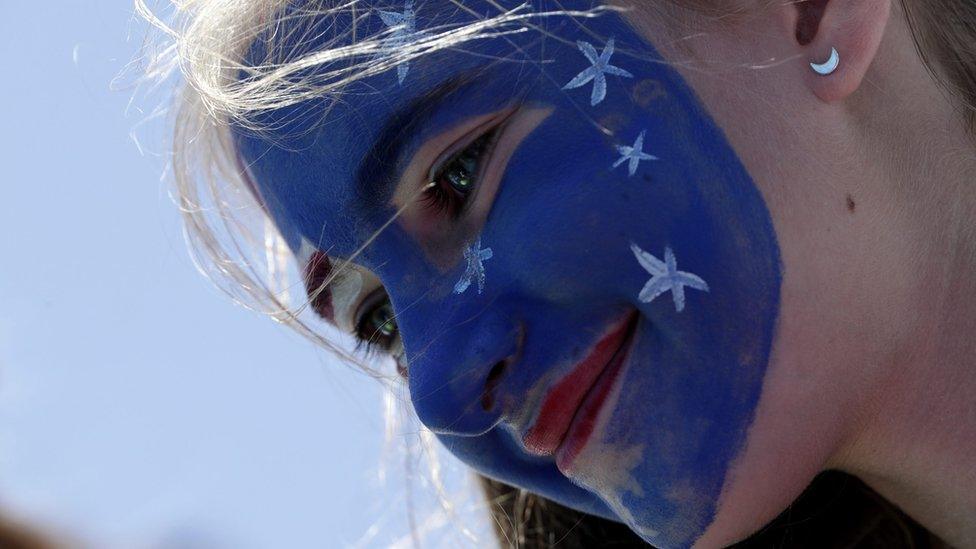Halal snack pack: The kebab that defined Australia in 2016
- Published
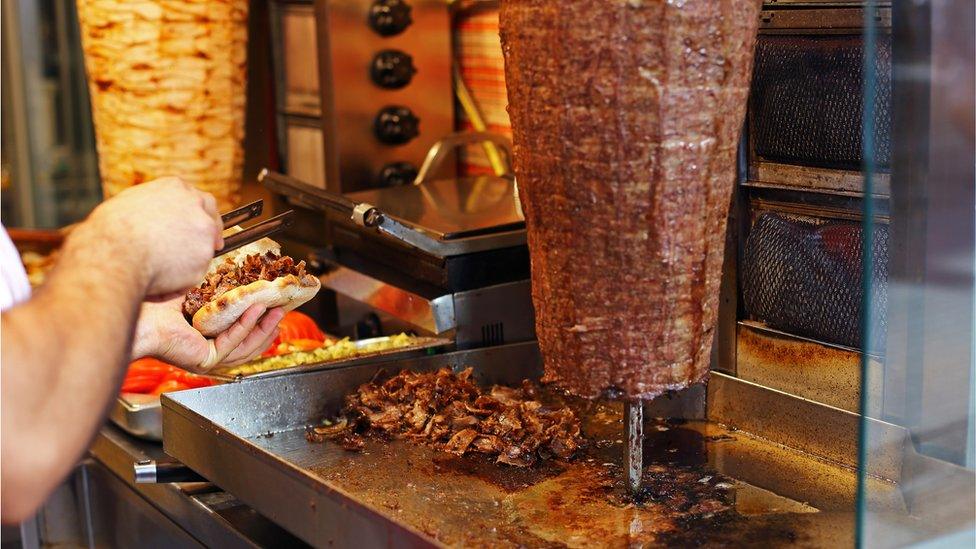
"Halal snack pack" has been named People's Choice Word of the Year 2016 by Australia's Macquarie Dictionary.
A snack pack, also known as an HSP, is a hearty pile of kebab meat, chips and sauce which has become a staple of Australian takeaway shops.
It's perhaps an unlikely platform for political debate, but this year the dish rocketed into Australia's national consciousness, becoming a symbol of peaceful multiculturalism for many, but for others, an unwelcome sign of the growing influence of Islam.
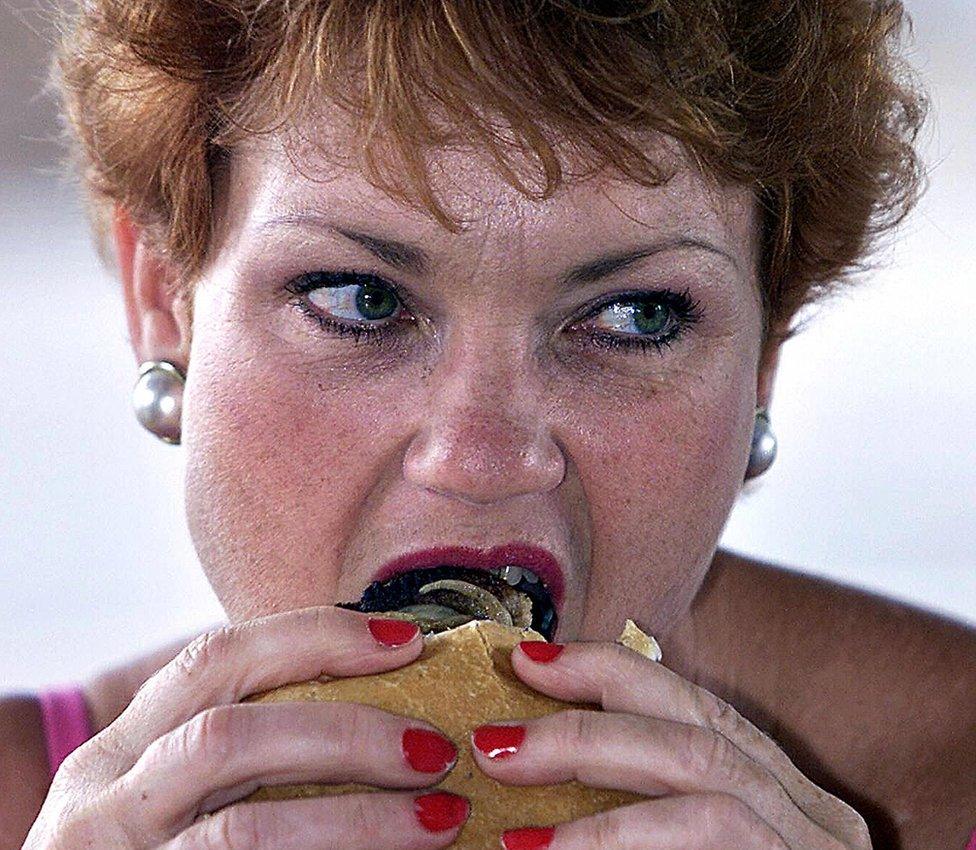
Politician Pauline Hanson takes the view that halal meat is unacceptable in Australia
This year the dish, made to Islamic religious standards, found its way into politics, after right-wing anti-Islam politician Pauline Hanson refused an invitation to eat one.
In congratulating her on her election to the Senate in July, Labor Senator Sam Dastyari - a "non-practising Muslim" - told Ms Hanson: "I'll take you out for halal snack pack out in Western Sydney, whenever you want."
Mr Dastyari was arguably slightly trolling Ms Hanson, whose One Nation party believes, external that by "buying halal certified products, it means that you are financially supporting the Islamisation of Australia".
"It's not happening, not interested in halal, thank you," she replied, arguing (without evidence) that "98% of Australians" were also against halal.
The dish subsequently enjoyed a surge in popularity. One Melbourne kebab shop, external even added "The Pauline Hanson" to its menu - "Lamb kebab roasted to perfection in the rotisserie, mint yoghurt, chilli sauce, cheese, beer battered chips".
'Halal snacky'
The halal snack pack is an Australian creation, but its creators were immigrants or descendants of recent immigrants from the Middle East and Europe.
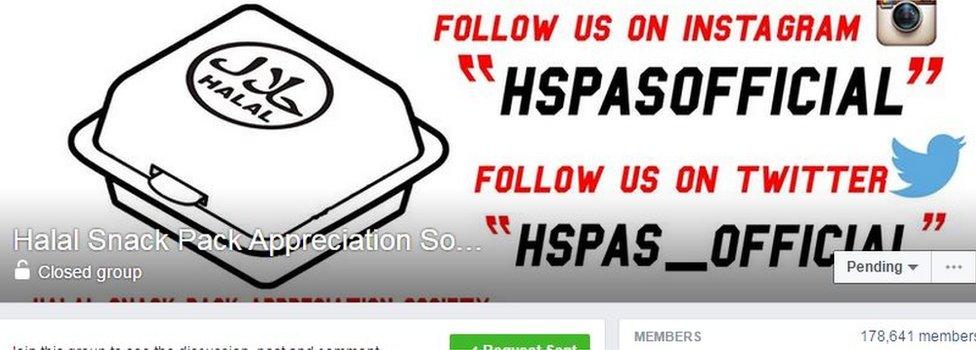
It's a fusion of these cuisines, and even has its own appreciation society on Facebook, external, for "sharing great snack pack stories and discussing possible best snack pack in world".
The forum asks members to "show us a sick pic of ur halal snacky, whered ya get it?, is it sick?, is it halal? and salrite or na? also, is it a halal snack pack mountain or na?"
The group, which has close to 180,000 members, was inspired by a visit its founders made to Oz Turk Jr, a kebab shop in Sydney.
"Before, we used to sell 10 kebabs for one snack pack, now it's 10 snack packs to one kebab," says owner Ufuk Bozouglu.
An Australian Muslim of Turkish origin, he credits his mum for the popularity of his snack packs, saying "she taught me you should only sell what you'd eat".
Mr Bozouglu says his customers are mainly students living locally - who'll queue for up to 40 minute at peak times - but one boy travels two-and-a-half-hours each week to buy one of his snack packs, which cost about A$10.50 each ($8; £6.30), with cheese.
He says he's never seen anyone be perturbed by the fact his meat is halal.
"Where we live, it's very multicultural, and people see it doesn't matter if you're Christian, Hindu, whatever. You become friends and have respect for each other."
"The people that it does matter to, they're usually from small areas so they only thing they see [about Muslims] is what they read in the paper.
"People around this area, they're all together," he says. "Sometimes, you go on Facebook and it's just hate towards Muslims," he says, but on the snack pack appreciation forum, it's all about the food.
'Nothing sinister about halal'
Keysar Trad, president of the Australian Federation of Islamic Councils, says normalising words used by other languages can only be a good thing.
"Especially if you're able to find it in the dictionary, it takes away the mystery," he said.
"It brings people comfort and satisfaction that there's nothing sinister about the word halal. It's all about what's positive, what is good and wholesome."
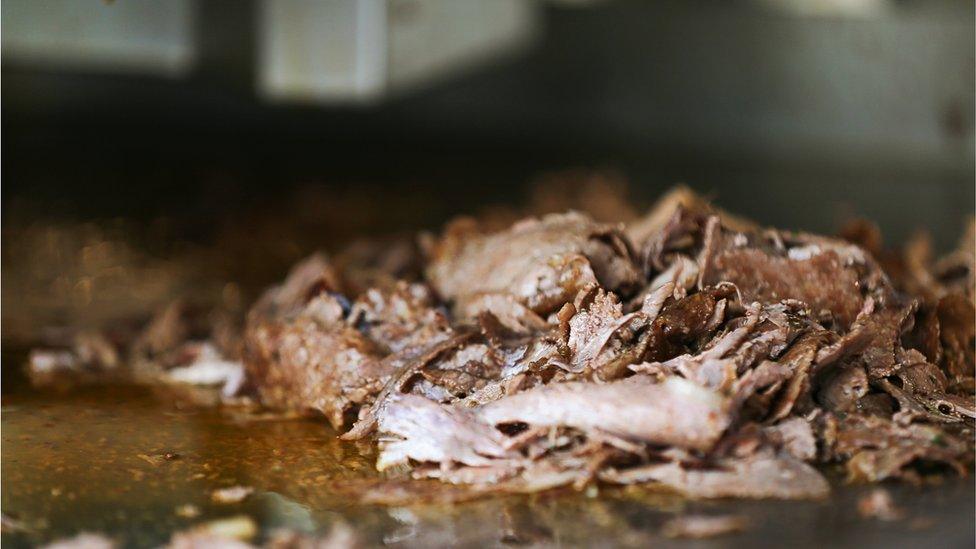
The popularity of halal snack packs "demystifies the word, demystifies the culture from which those words are borrowed and hopefully, helps built harmony in society".
The Macquarie committee said, external the choice of the halal snack pack as word of the year "tells us about something once confined largely to the Muslim community that is now surfacing throughout the broader Australian community".
The dictionary's editor, Susan Butler, even said it was "the duty of lexicographers to, as much as is humanly possible, eat the food items that they put in the dictionary".
"How can you write the definition of HSP with enthusiasm if you have never sampled it? So today I ate my first HSP.
"I can understand why this dish has become the fast food item of the day. It is carbo-loaded, calorific sinfulness. Once started on it, you cannot stop."
Reflecting similar trends, the dictionary committee last week named "fake news" it's Word of the Year, saying it "captures an interesting evolution in the creation of deceptive content as a way of herding people in a specific direction".
- Published12 May 2014
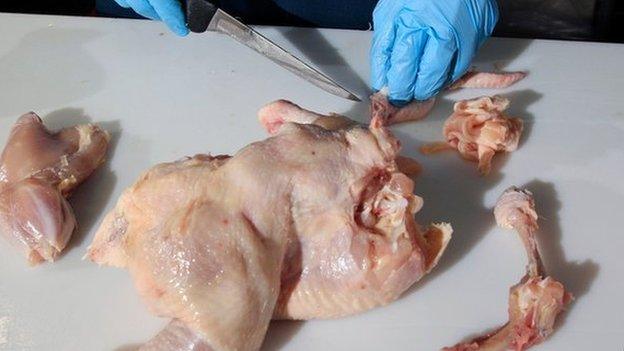
- Published23 January 2017
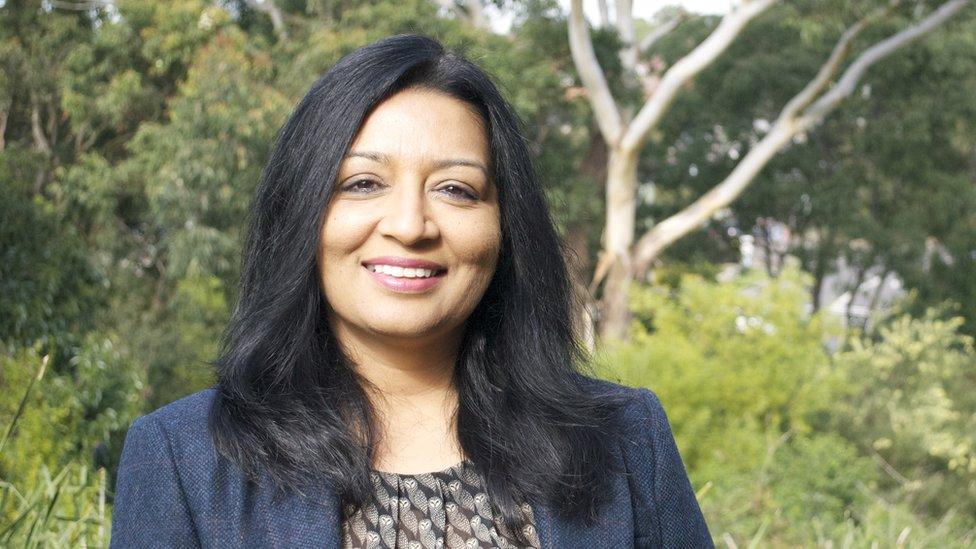
- Published25 January 2017
